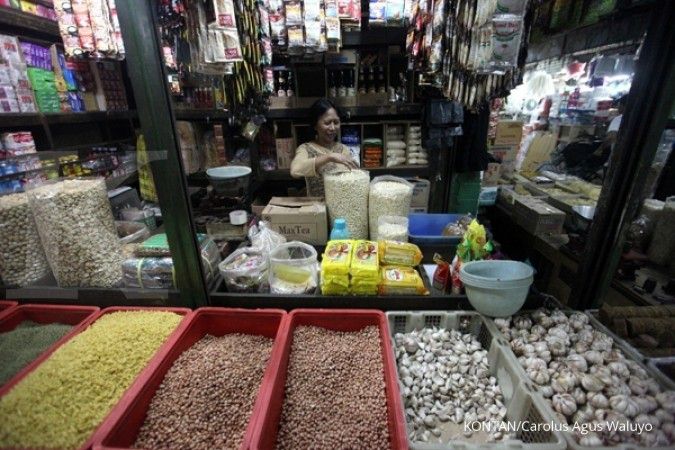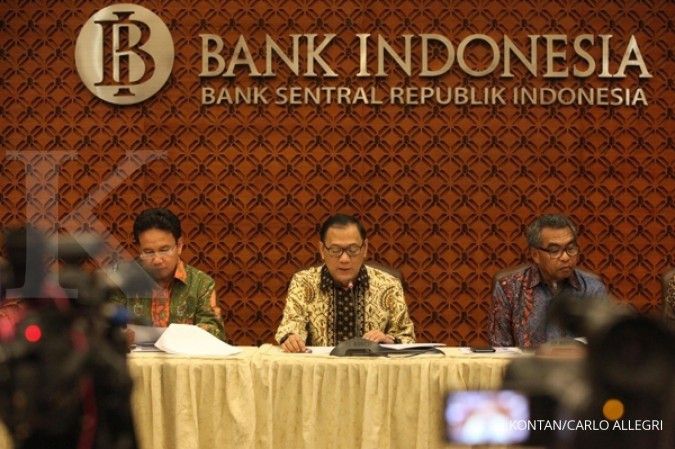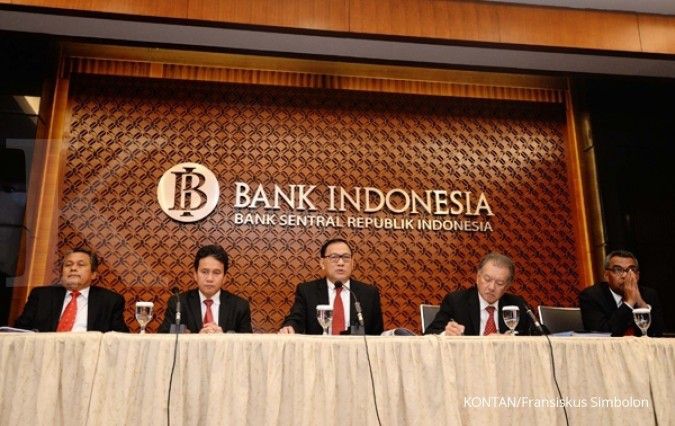JAKARTA. The continually declining oil price has raised expectations: lending interest rate will go down. Bank Indonesia has promised to cut its benchmark (BI rate) when fuel price drop.
Executive Director of the Monetary and Economic Affairs BI Juda Agung said the decline in oil price could drag down the consumer price, so the inflation becomes more beningn.
He has calculated, low oil price around US$ 30 a barrel will be a significant impact on inflation rate. Especially, if government also lower oil price assumption in the state budget from US$ 50 to US$ 40 a barrel.
The oil price slump in state budget is closely correlated with price decreasing of specific goods determined by the government (administrated price), such as fuel, electricity, and the price of grain.
"The government could trim fuel again. It will be a big factor pushing BI rate," said Juda, Wednesday (20/1).
Moreover, low oil price also fueled doubt that The Fed to raise interest rates again. So, BI can more freely cut interest rates in the first quarter.
Chief Economist Samuel Asset Management Soelistianingsih said BI can use the momentum of the oil price downturn to cut interest rates.
The room is bigger if the government cuts fuel prices again. "With conditions, rupiah remained at Rp 14,000 a dollar," she said. BI could lower the BI rate 75 bps-100 bps in the first half from the current position of 7.25%, she said.
Executive Director of the Energy Watch Mamit Setiawan said the chances of fuel prices dropped open. With oil prices at US $ 27.63 a barrel, the price of fuel, especially Premium should be less than Rp 7,050 a liter.
Mamit calculated, with a crude oil price of US $ 30 a barrel, the economic price of Premium will be Rp 5,000 a liter. "It was a raw count, yes," he said.
However, there are other variables that cause the Premium is not that cheap, such as margin of gas stations and fuel prices purchased by Pertamina.
Energy observer from Gajah Mada University (UGM) Fahmi Radi said, the economic price of gasoline and diesel fuel in January is no longer relevant. "It should go down again. But it's hard for evaluation every three months," he said. It means that the new price decision will be in March.
In fact, if govt can take advantage of this momentum, the economic movement will be faster, driven rise in consumer spending and declining mortgage interest.
/2015/05/22/607713163p.jpg)












